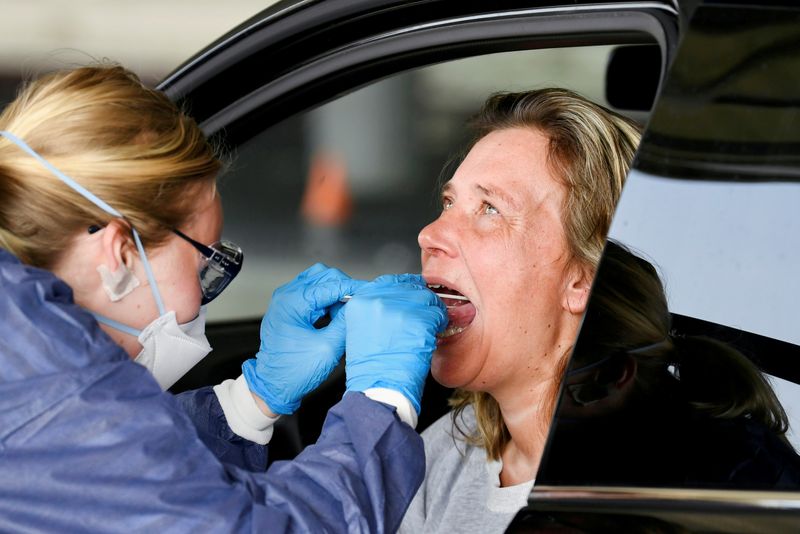(Reuters) - Here's what you need to know about the coronavirus right now:
Implications of reinfection cases
Two patients, in Belgium and the Netherlands, are confirmed to have been re-infected with COVID-19, following a report this week by Hong Kong researchers about a man who had contracted a different strain of the virus four-and-a-half months after being declared recovered.
"Viruses mutate and that means that a potential vaccine is not going to be a vaccine that will last forever, for 10 years, probably not even five years. Just as for flu, this will have to be redesigned quite regularly," said Belgian virologist Marc Van Ranst, adding that vaccine designers would not be surprised.
Dr David Strain, a clinical senior lecturer at the University of Exeter and chair of the British Medical Association's medical academic staff committee, said the cases were also worrying as it suggested that previous infection does not provide protection.
Vaccine funding and binding commitments needed
Some 172 countries are engaging with the COVAX facility designed to ensure equitable access to COVID-19 vaccines, the World Health Organization said on Monday, but more funding is needed and countries need now to make binding commitments.
Countries wishing to be part of the global COVAX plan have until Aug. 31 to submit expressions of interest, WHO officials said, with confirmation of intention to join due by Sept. 18, and initial payments due by Oct. 9.
"Vaccine nationalism only helps the virus," WHO director general Tedros Adhanom Ghebreyesus told a media briefing. "The success of the COVAX facility hinges not only on countries signing up to it, but also filling key funding gaps." COVAX currently covers nine candidate COVID-19 vaccines and its aim is to secure supplies of and deliver 2 billion doses across countries that sign up by the end of 2021.
Spike in U.S. college cases
More U.S. colleges were grappling with high numbers of students testing positive for the coronavirus just days into the start of the fall semester after some universities rolled back their campus reopening plans in recent weeks.
The University of Alabama on Monday reported more than 550 people across its campuses had tested positive for COVID-19 since it resumed in-person classes on August 19. Most of those infected were students, faculty and staff at the university's main campus in Tuscaloosa.
Citing a "dramatic increase" in coronavirus cases on campus, the mayor of Tuscaloosa issued an executive order on Monday ordering bars to shut down for 14 days and placing restrictions on other establishments.
Lessons from India's Silicon Valley
The early COVID-19 response in Bengaluru, dubbed India's Silicon Valley for its tech firms and startups, was lauded by India's government as a model, for its use of health surveys combined with efforts to tap tech expertise and cutting-edge software to analyse the spread of the disease.
But after India eased a nationwide lockdown in early June, officials say tens of thousands of travellers streamed in from Maharashtra and Tamil Nadu, many unwittingly bringing the virus.
The neighbouring states have been the two worst hit by COVID-19 in India. "We didn't look at the inbound travellers as a major source of infections," said one official involved in Bengaluru's response. "We never anticipated that many people would come."

Since late June, Bengaluru has been sealing areas where cases jump, said Hephsiba Rani Korlapati, a bureaucrat running the Bengaluru "war room", noting this involves placing barricades at entry and exit points - in effect quarantining entire neighbourhoods. "Aggressive testing of contacts and home isolation is the way to contain the spread," she said. "That is being taken very seriously and is being done right now."